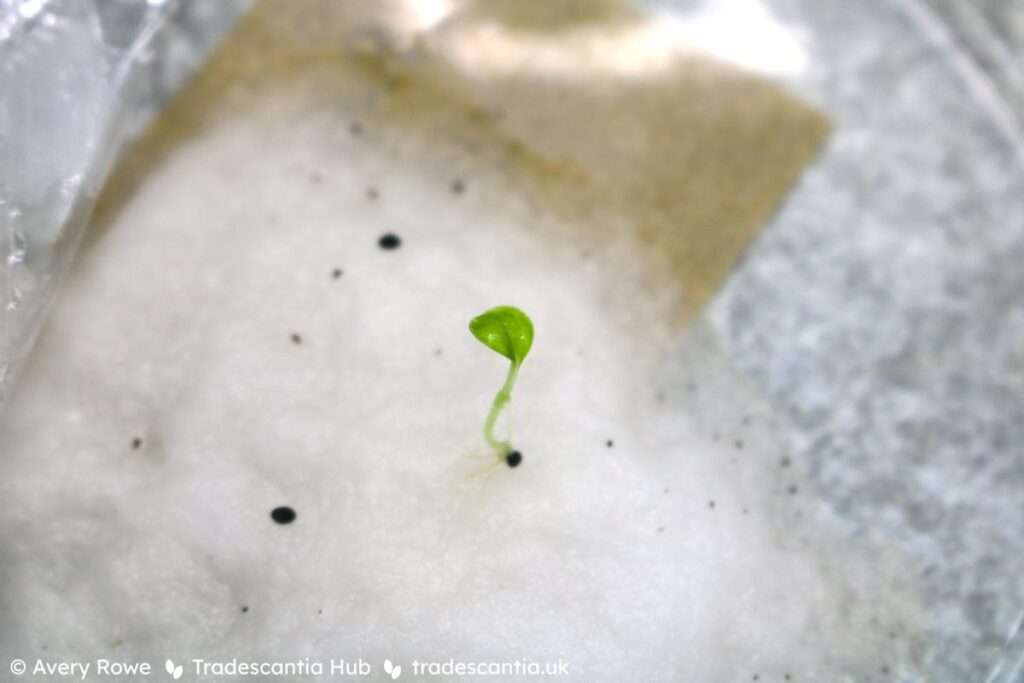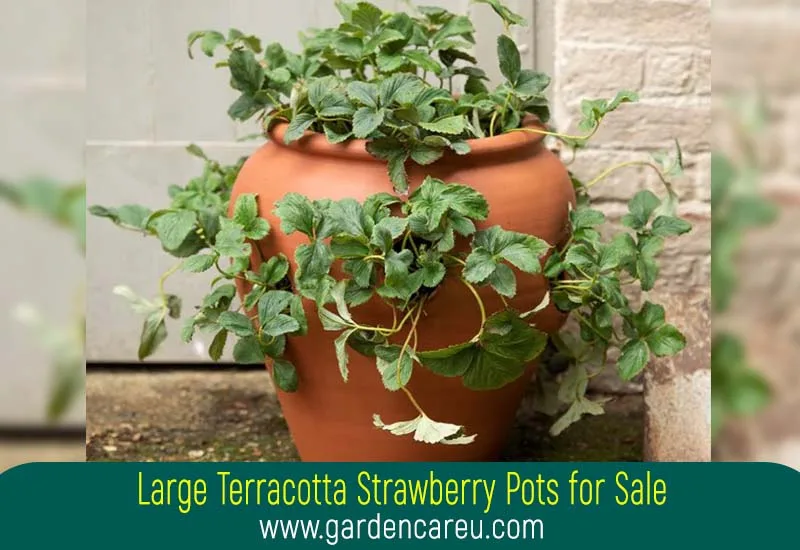How Long Do Strawberries Take to Germinate? Strawberries typically germinate in one to six weeks under proper conditions. When growing strawberries from seeds, the germination time is a crucial factor to consider.
Understanding how long it takes for strawberries to germinate can help you plan and care for your plants effectively. Strawberries are a popular fruit to grow at home due to their delicious taste and health benefits. However, starting from seed requires patience and attention to detail.
You can grow strawberries from scratch by knowing the germination time and following the right steps. We will explore the process of germinating strawberry seeds and share tips for a successful harvest. Let’s dive in to learn more about growing strawberries from seed!
[ez-toc]

Factors Affecting Strawberry Seed Germination
Factors affecting strawberry seed germination include the amount of water, light, and temperature. On average, strawberries take around 2-3 weeks to germinate, but this can vary depending on the specific conditions provided. Proper care and attention should be given to ensure successful germination and growth of strawberry seeds.
Ideal Conditions
Strawberries are sensitive to their surroundings, and ensuring ideal conditions is crucial for successful seed germination. The following factors play a significant role in the germination process:
- Temperature
- Moisture
- Light
- Soil Quality
Common Issues
Several common issues can hinder the germination of strawberry seeds. These issues include:
- Excessive watering leads to seed rot
- Inadequate moisture causing dormancy
- Improper soil temperature
- Lack of adequate light
Understanding Strawberry Germination Time
The germination time for strawberries can vary, but generally, it takes about one to six weeks for the seeds to sprout. Pressing the seeds into the surface without covering them is important, as they require light to germinate successfully.
The seedlings should be transplanted into larger pots about six weeks after germination.
Typical Timeframe
Strawberry seeds can germinate in 1 to 6 weeks. They require light for germination and should not be covered with soil.
Influencing Factors
Water plays a crucial role in strawberry seed germination; excessive or inadequate water can hinder the process.
Methods For Germinating Strawberry Seeds
Germinating strawberry seeds can take one to six weeks, depending on the method used. It’s crucial not to overwater, as excess moisture may hinder germination. Providing ample light and keeping the soil consistently moist without saturating it can help speed up the germination of strawberry seeds.
Germinating strawberry seeds is an exciting process that allows you to grow your delicious strawberries right at home. While it may take some patience, the rewards are well worth it. You can try various methods to germinate strawberry seeds, each with its advantages. Let’s explore two popular methods: Wet Paper Towel and Seedling Mix.
Wet Paper Towel
The wet paper towel method is a simple and effective way to germinate strawberry seeds. Here’s how you can do it:
- Dampen a paper towel with water until it’s moist but not soaking wet.
- Place the strawberry seeds on one half of the towel, leaving enough space between them.
- Fold the other half of the towel over the seeds to create a sandwich.
- Put the towel with the seeds in a plastic bag or container to retain moisture.
- Keep the bag or container in a warm and bright location, but avoid direct sunlight.
- Check the towel regularly to ensure it remains moist. Spray water lightly if needed.
- After a couple of weeks, you should start to see the seeds germinate and tiny seedlings emerge.
This method works well because the moisture in the paper towel creates a controlled environment for the seeds to germinate. It also helps retain moisture, which is essential for successful germination.
Seedling Mix
Another method for germinating strawberry seeds is using a seedling mix. Here’s how you can do it:
- Fill a tray or small pots with a seedling mix, which is a light and well-draining soil mixture.
- Press the strawberry seeds gently onto the soil’s surface without covering them.
- Mist the soil lightly to keep it moist, but be careful not to overwater.
- Place the tray or pots in a warm, brightly lit area away from direct sunlight.
- Regularly check and mist the soil moisture as needed to maintain the right moisture level.
- Depending on the strawberry variety, you should notice the seeds germinating and sprouting little seedlings within one to six weeks.
- Once the seedlings have grown enough, you can transplant them into larger individual pots or your garden.
The seedling mix method provides a suitable growing medium for the strawberry seeds. It allows for good drainage and aeration, promoting healthy root development. Remember to keep the soil moist but not wet, as excessive moisture can cause the seeds to rot.
Whichever method you choose, patience is key when germinating strawberry seeds. The time it takes for the seeds to germinate can vary depending on several factors, including the strawberry variety and environmental conditions.
Now that you know two effective methods for germinating strawberry seeds, you can embark on your strawberry-growing journey and enjoy the fruits of your labor!
Tips For Successful Strawberry Seed Germination
When it comes to successful strawberry seed germination, it takes about one to six weeks for the seeds to sprout. It’s important to lightly press the seeds into the surface without covering them, as they need light to germinate. Daily misting is required to keep the soil moist for successful germination.
Ensuring Proper Moisture
To successfully germinate strawberry seeds, maintaining proper moisture is crucial. Be mindful not to overwater the seeds. Mist the soil daily to keep it moist but not wet. Overly intense watering can push the seeds down into the soil, hindering their ability to germinate. Too little water can also cause the seeds to remain dormant. Strive for a delicate balance in moisture levels to promote healthy germination.
Providing Adequate Light
Strawberry seeds require exposure to light to germinate. When planting, press the seeds into the soil surface without covering them. Additionally, ensure a strong light source is provided above the seeded flat. By meeting this light requirement, you can maximize the chances of successfully germinating your strawberry seeds.
Troubleshooting Delayed Strawberry Seed Germination
Many gardeners anticipate the germination of their strawberry seeds, only to face delays in the process. Understanding the possible causes and taking the appropriate remedial actions can help resolve issues and ensure successful germination.
Possible Causes
- Incorrect planting depth
- Inconsistent watering
- Inadequate light exposure
- Poor soil quality
Remedial Actions
- Adjust planting depth to ensure seeds are not buried too deep.
- Establish a consistent watering schedule to keep the soil moist but not waterlogged.
- Provide adequate light by placing seeds in a sunny location or using grow lights.
- Improve soil quality by adding organic matter or a balanced fertilizer.
Comparison: Growing Strawberries From Seed Vs. Transplants
When it comes to growing strawberries, deciding whether to grow them from seed or nursery transplants is an important choice for any gardener. Each method has its advantages and disadvantages that can impact the time it takes for strawberries to germinate and the overall growth process.
Pros And Cons
Here’s a breakdown of the pros and cons of growing strawberries from seed versus transplants:
| Seed | Transplants | |
|---|---|---|
| Pros |
|
|
| Cons |
|
|
Time To Harvest
When growing strawberries from seed, the time to harvest is generally longer compared to using transplants. Seed-grown strawberries can take several weeks to germinate and establish, adding more time to the overall growing process. On the other hand, transplants offer a quicker route to fruit production, as they are already established plants and can start producing fruit sooner after planting.
Frequently Asked Questions Of How Long Do Strawberries Take To Germinate
What Is The Fastest Way To Germinate Strawberry Seeds?
The fastest way to germinate strawberry seeds is to cover them with soil and mist them daily. Provide a strong light source above the seeded flat. Avoid watering too intensely or too little, as it can disturb the seeds’ germination process.
Seeds will germinate in one to six weeks.
Why Are My Strawberry Seeds Not Germinating?
Strawberry seeds may not germinate due to over or under-watering. Correct moisture levels are crucial for germination.
Why Are My Strawberries Taking So Long To Sprout?
Strawberries may take one to six weeks to sprout due to light requirements for germination. Avoid overwatering, which can lead to rot or fungi.
Is Growing Strawberries From Seed Hard?
Growing strawberries from seed is relatively easy. The seeds need light to germinate, so avoid covering them with soil. Mist the soil daily to keep it moist, but be careful not to overwater. Germination typically takes one to six weeks.
Transplant the seedlings into larger pots after six weeks.
How Long Does It Take For Strawberry Seeds To Germinate?
Germination of strawberry seeds usually takes anywhere from one to six weeks.
Why Are My Strawberry Seeds Not Germinating?
The most common reason strawberry seeds do not germinate is too much or too little water.
Conclusion
After planting, strawberries germinate in one to six weeks, needing light for growth. Proper watering is crucial to prevent rot. Growing strawberries from seed is relatively easy and cost-effective. Meet their basic needs, and you can enjoy fresh strawberries quickly!
Happy planting!


